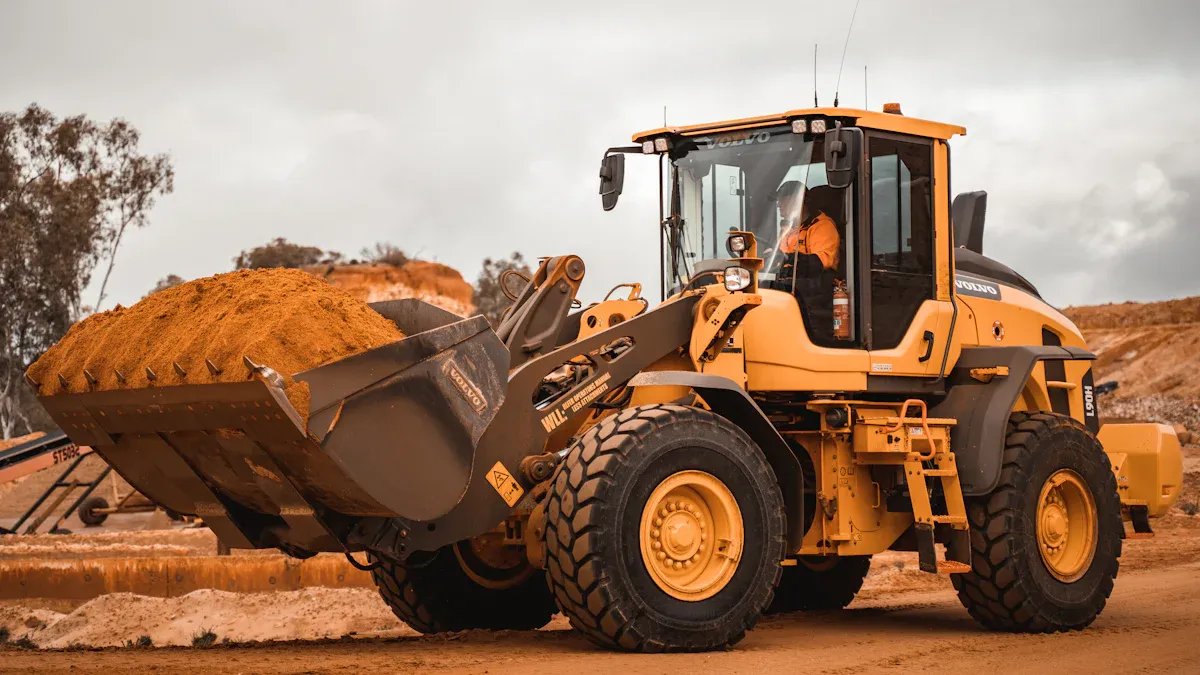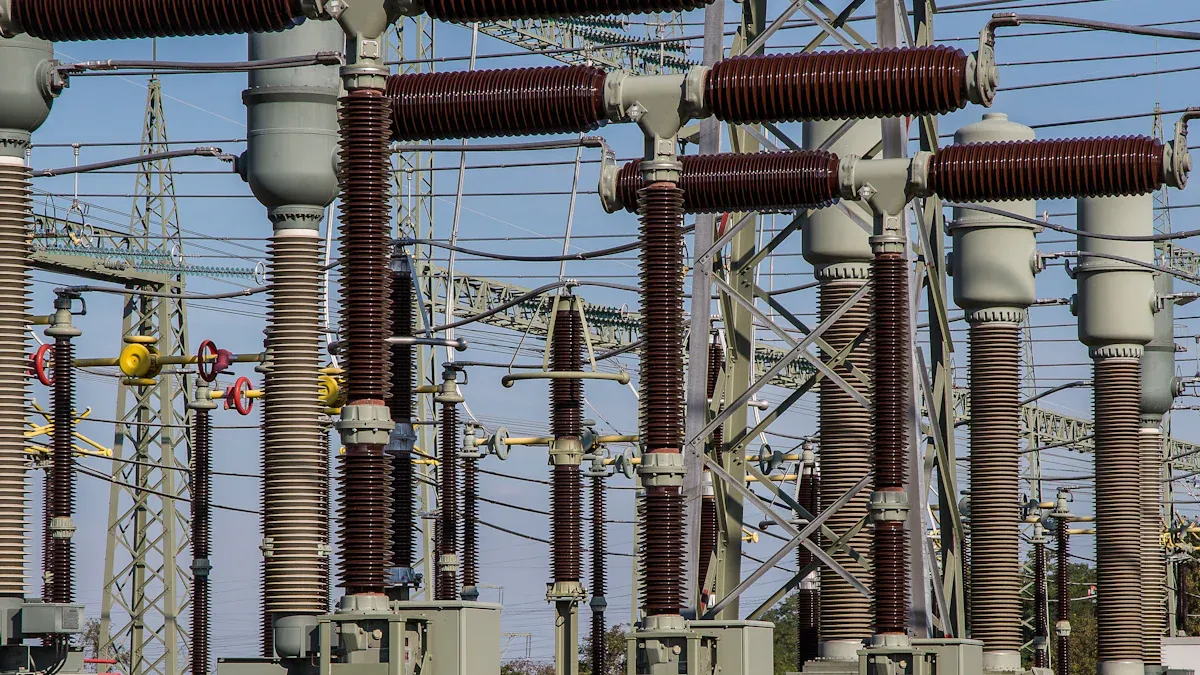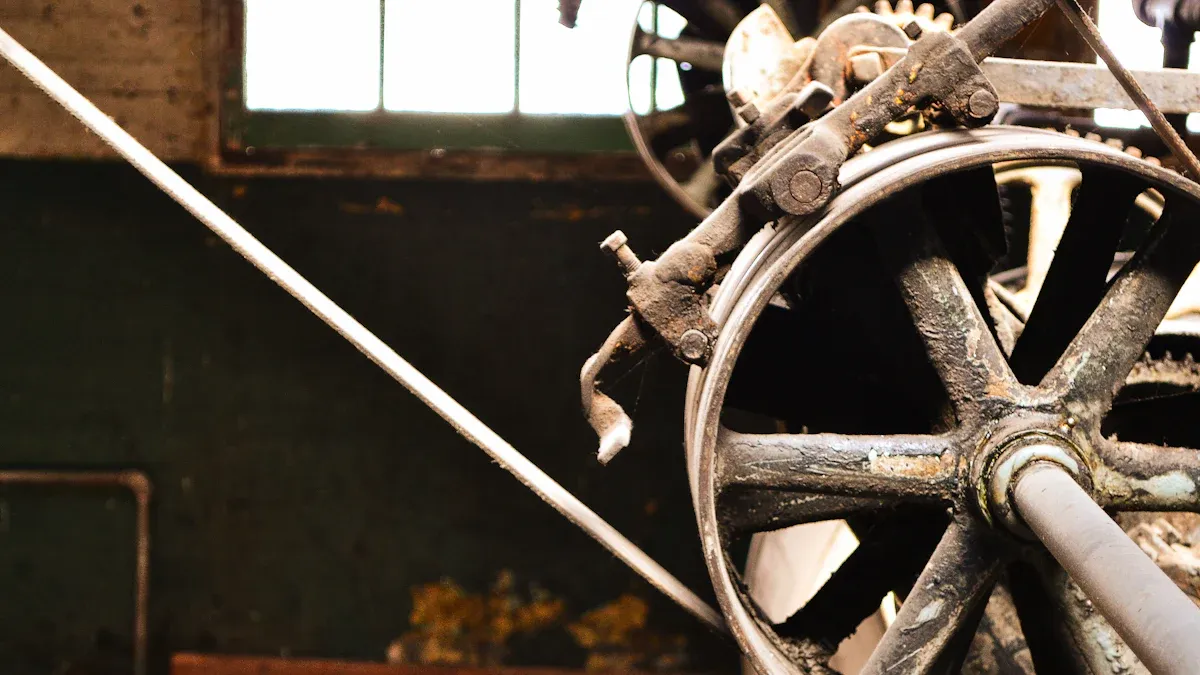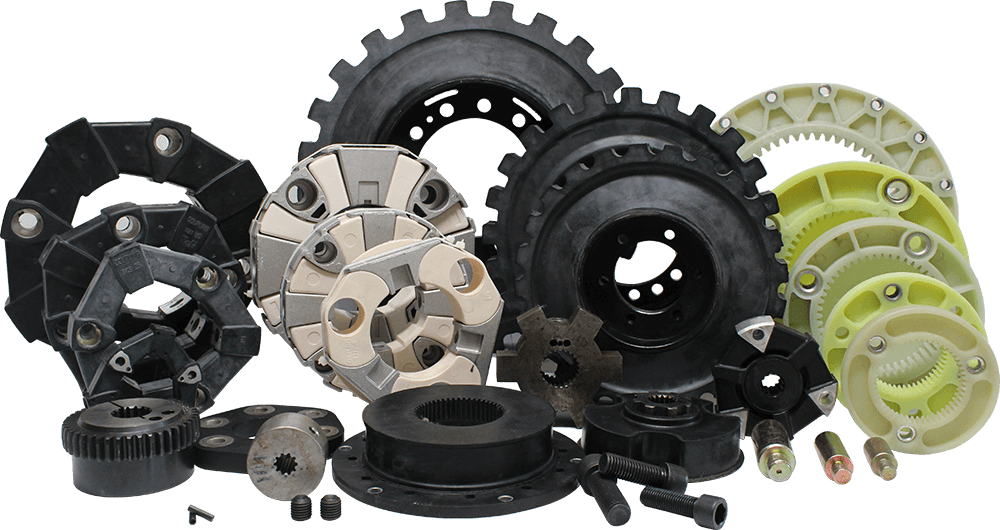
Isolator mounts help stop unwanted movement. They keep equipment away from its base. Using an isolator mount lowers vibration and noise. This stops sound from moving through the frame. For example, a fan in your computer can make buzzing sounds. Isolator mounts keep that buzzing from spreading. Picking the right mount matters a lot. Spring mounts are better for high-frequency noise. Rubber or neoprene mounts work for some appliances. But they may not stop low-frequency vibrations. Choosing the best mount gives you quieter and smoother use.
Key Takeaways
Isolator mounts help lower noise and vibration. They act as barriers between machines and their bases. This makes the workspace quieter and more comfortable.
Picking the right isolator mount is very important. There are different types, like rubber and spring mounts. Each type works better for certain vibrations and uses.
Checking isolator mounts often can make them last longer. Most mounts last five to seven years. Inspections can help stop problems before they start.
Isolator mounts keep equipment safe from harm. They soak up shocks and vibrations. This helps machines last longer and lowers repair costs.
Many industries use isolator mounts. These include automotive, electronics, and industrial machinery. Isolator mounts help improve performance and safety.
Isolator Mounts Explained

What Are Isolator Mounts
Isolator mounts help keep machines steady. They work like soft pads between a machine and its base. Their main job is to stop vibration and noise from spreading. People use many names for them, like bumpers, feet, shockmounts, or buffers. All these names mean the same thing. They help cut down on shaking and loud sounds.
Isolator mounts come in different shapes and sizes. You can find them in computers, washing machines, cars, and big machines. Most isolator mounts last about 5 to 7 years if used right. You do not need to check them all the time. But checking them sometimes helps them last longer.
Tip: For the best results, pick the right vibration isolation mounts for your machine. If you choose the wrong size or material, you might get too much shaking or not enough noise control.
How Isolator Mounts Work
Isolator mounts have a simple design. Most have a metal center with a rubber cover. The metal part gives strength and holds heavy things. The rubber part bends and soaks up vibration. When you put a machine on vibration isolation mounts, the rubber moves a little. This stops vibration from going into the floor or frame.
Here is a table that shows the main parts and materials in isolator mounts:
Component/Material | Description |
|---|---|
Mount Body | Natural rubber (NR) – Black, vulcanized to cover plates, temperature resistant up to 176 °F (80 °C), Shore hardness A ±5 Medium 55 |
Cover Plates | Steel, zinc plated, yellow passivated finish |
Attachment Hardware | Cold rolled steel inserts in natural rubber 45 durometer hardness; custom options include stainless steel, brass, etc. |
Rubber Types | Natural Rubber, Silicone, Neoprene, EPDM, Nitrile – available in commercial and ASTM specification grades |
You can find vibration isolation mounts made from different kinds of rubber:
Natural Rubber
Silicone
Neoprene
EPDM
Nitrile
The type of rubber changes how well the mount stops vibration. Softer rubber soaks up more vibration but is not as strong. Harder rubber holds more weight but does not stop as much vibration.
The science behind vibration isolation mounts is easy to understand. The mount acts like a spring and a damper. The weight of your machine, the stiffness of the mount, and the damping material all work together. If the mount’s natural frequency is much lower than the vibration from your machine, you get better isolation. Here is a table that explains how each part works:
Component | Role in Vibration Damping Mechanism |
|---|---|
Mass | Dictates the natural frequency of the system. |
Spring Stiffness | Influences the natural frequency and contributes to the system’s response. |
Damping Elements | Causes energy dissipation, affecting the efficiency of vibration isolation. |
Vibration isolation mounts lower the amount of vibration that moves from the source to the receiver. They make a soft link, so energy does not move easily. For the best results, the mount’s natural frequency should be much lower than the vibration frequency.
Note: Some people think vibration isolation mounts stop all movement. They actually allow a little movement. This small motion is needed for good isolation.
If you want the best results, spring isolators work better than rubber ones. Spring mounts can bend more and have an air gap. This lets them soak up more energy and stop more vibration. Rubber mounts are easier to use and cost less, but they may not work as well for very strong vibrations.
Isolator mounts can fail if you pick the wrong size or material, install them wrong, or forget to check them. You can avoid problems by following the instructions and checking them sometimes.
Environmental Impact: Makers now use better ways to make isolator mounts. They try to make less waste and make recycling easier when the mounts are old.
Types of Vibration Isolation Mounts
When you want to stop noise and shaking in machines, you have many choices. Each mount type works best for certain jobs. You can pick rubber mounts, spring mounts, or other special isolators. Here are the main types you might see:
Elastomeric mounts
Spring mounts
Air mounts
Wire rope mounts
Hydraulic mounts
Rubber Mounts
Rubber mounts are used a lot in machines. You can find them in many systems. These mounts use rubber or special plastics to soak up vibration. Most rubber mounts have a steel center. This makes them strong and simple to put in place. You can use them in small or big machines.
Rubber is great for stopping vibration. It soaks up noise and makes things quieter.
Here is a table that shows how rubber mounts compare to other materials:
Material Type | Vibration Isolation Effectiveness | Common Issues |
|---|---|---|
Rubber Mounts | High | Fatigue failure, brittleness |
Blended Rubber Mounts | Improved | Reduced low frequency vibration |
Other Materials | Variable | Depends on specific material used |
Rubber mounts work well for most machines. They last a long time if used right. But they can break or get hard if used wrong.
Spring Mounts
Spring mounts use metal coils to hold up machines. These mounts can carry heavy things and let them move a bit. You will see spring mounts where machines shake a lot. They are good for HVAC, generators, and big machines.
Here are some common uses for spring mounts:
Application Type | Description |
|---|---|
HVAC Systems | Minimize vibrations caused by compressors and fans. |
DG Sets | Isolate heavy vibrations from generators. |
Heavy Machinery | Prevent structural damage due to continuous vibrations. |
Power Generators | Improve efficiency by controlling vibration transmission. |
Spring mounts are better for stopping low-frequency shaking. They also help protect machines from getting damaged over time.
Other Mounts
There are other mounts for special needs. Air mounts use air to hold up machines and stop shaking. Wire rope mounts use twisted metal ropes to soak up shock and vibration. Hydraulic mounts use liquid to slow down movement in machines.
Air mounts are good for delicate equipment.
Wire rope mounts are tough and handle rough places.
Hydraulic mounts control both shaking and movement in tricky machines.
Each mount helps keep your machines safe and working well. Picking the right isolator helps your machines last longer and run better.
Vibration Isolation Benefits
Noise and Vibration Reduction
Vibration isolation mounts help make your workspace quieter. These mounts act like barriers that stop vibrations from moving through floors and walls. When you use them, you hear less noise and feel less shaking from machines. The rubber or spring inside each mount soaks up energy. This blocks buzzing and rattling sounds.
Tip: For a peaceful place, pick mounts with strong damping. These mounts help control unwanted vibrations and noise.
Equipment Protection
Vibration isolation mounts keep machines safe from damage. They lower the risk of wear and tear caused by vibrations. The damping material inside each mount soaks up shocks and keeps moving parts safe. Your equipment lasts longer because the mounts stop small shakes from becoming big problems.
Vibralastic isolation mounts soak up shocks and lower vibration. This helps machines work better and last longer. UNISORB® Vibralastic Isolation Mounts also keep motors and compressors steady. You save money because you do not need to replace parts as often.
Note: You also make your workplace safer. Vibration isolation mounts lower unwanted vibrations. This helps prevent health problems like hand-arm vibration syndrome (HAVS). You lower the chance of injuries and keep your team safe.
Vibration isolation mounts lower extra machine vibration.
They help stop health problems linked to unwanted vibrations.
You make your workspace safer and more comfortable.
Maintenance-Free Operation
You do not need to check vibration isolation mounts all the time. The damping materials inside each mount work for years with little care. You spend less time on repairs because the mounts control unwanted vibrations. Most mounts last five to seven years if you use them right.
You get steady performance and fewer breakdowns. The mounts keep your machines steady and quiet. You save time and money because you do not need to fix things as often.
Callout: If you want a long-lasting fix, pick mounts with good damping materials. These mounts give you maintenance-free use and peace of mind.
Mounts in Real-World Applications

Isolator mounts are used in many places. You see them in cars, hospitals, and factories. These mounts soak up energy and lower shaking. They help machines work better and last longer. Vibration isolation systems protect your equipment and make it work well.
Automotive and Machinery
Isolator mounts are found in cars and trucks. They help cut down noise and shaking. In vehicles, these mounts hold up engines and exhausts. You get a smoother ride and less damage to parts. Machines use vibration isolation in generators and pumps. This keeps machines steady and safe.
Sector | Application Description |
|---|---|
Automotive | Used in suspension systems, engine mounts, and exhaust systems to control vibrations and noise. |
Machinery | Employed in generators, compressors, pumps, and motors to reduce vibrations and enhance operational efficiency. |
Recreational vehicles
Heavy trucks
Construction equipment
Vibration isolation helps keep people safe and comfortable. It also lowers tiredness and makes things quieter for everyone.
Electronics and Appliances
Isolator mounts protect computers and home appliances. Vibration isolation systems keep washing machines and speakers safe. These mounts stop shocks from hurting delicate parts. Your devices last longer and break less often.
Feature | Description |
|---|---|
Vibration Isolation | Provides effective vibration isolation to protect sensitive equipment from shock and vibration. |
Fail-safe Design | Ensures that equipment remains secured even if elastomeric elements fail. |
Low Profile | Ideal for applications with limited space, maintaining performance without bulk. |
Load Ratings | Available in a wide range of load ratings for both stationary and mobile environments. |
Wire rope isolators lower the system’s natural frequency. They give strong protection from shock and vibration. Your electronics stay steady and work well.
Industrial Uses
Factories need vibration isolation to keep machines working. Isolator mounts are used in HVAC units and medical tools. These mounts control shaking and stop breakdowns. You get better work and longer machine life.
Industry | Description |
|---|---|
HVAC | Used in heating, ventilation, and air conditioning systems to control vibrations. |
Automotive | Essential for reducing vibrations in vehicles. |
Industrial Machinery | Critical for maintaining performance in machinery. |
Medical Devices | Important for ensuring the reliability of medical equipment. |
Aerospace | Used to mitigate vibrations in aircraft systems. |
If you want good vibration isolation, YNF Rubber has strong isolator mounts for all these jobs. You can trust their products to keep your equipment safe and quiet.
You now know isolator mounts use isolation to protect equipment. Isolation helps machines stay steady and quiet. Vibration damping stops damage from shaking. This means less noise and fewer machine problems. Isolation also helps you save money. You do not spend as much on repairs or new parts. Many experts say isolation helps machines last longer.
Isolation helps your equipment work for more years.
You spend less on fixing things because isolation lowers wear.
Research shows isolation can help machines last up to 50% longer.
If you want machines that are safer and quieter, use isolation mounts. Isolation helps you worry less and get better results.
FAQ
What is the main job of an isolator mount?
An isolator mount keeps machines steady. It stops vibration and noise from spreading. You get quieter and safer equipment.
How do I choose the right isolator mount?
You should check your machine’s weight and the type of vibration. Pick a mount that matches these needs. If you need help, YNF Rubber offers expert advice.
Can I install isolator mounts by myself?
You can install many mounts with basic tools. Always follow the instructions. If you feel unsure, ask a professional for help.
How long do isolator mounts last?
Most isolator mounts last five to seven years. You should check them sometimes for cracks or wear. Replace them if you see damage.
Where can I buy quality isolator mounts?
You can find reliable isolator mounts at YNF Rubber. They offer many types for different machines and needs.









